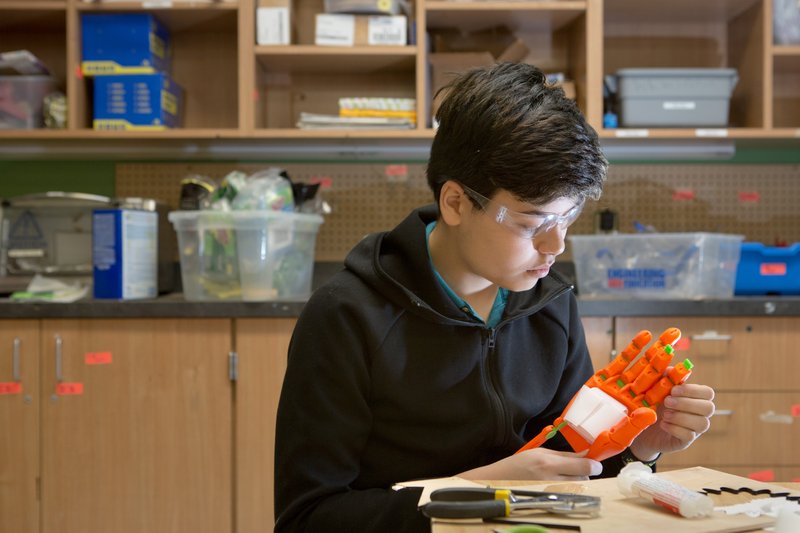The Future of Career-Technical Education: Building on Success While Responding to New Challenges
Blog Post

Photo by Allison Shelley/The Verbatim Agency for EDUimages
Nov. 5, 2025
Over the last two decades, career and technical education (CTE) has undergone significant reform and renewal, moving it from the margins to the center of education policy discussions. Long neglected in favor of college preparatory programs, America’s vocational education system was in deep crisis in the 1980s and 1990s, notable for low student performance, employment dead-ends, and a reputation for tracking low-income and racially minoritized students away from academic learning.
Beginning in the early 2000s, CTE innovators began experimenting with new approaches to design and delivery that have generated impressive results. Early college high schools, dual enrollment, and work-based learning models are a few examples of new approaches that have demonstrated promising results. Customer demand from parents and students for CTE programs is growing. New performance measures and monitoring processes help guard against tracking. High schools broadened their CTE programs and improved connections to high-wage careers and postsecondary pathways. They also increased the academic rigor of CTE programs in an effort to ensure students would be both college and career ready.
These reforms have paid off. Students are more likely today to seek out CTE opportunities than to be placed into them. In many high schools across the country, popular CTE programs are oversubscribed. But even as schools, families, and students have embraced reforms, our CTE system is still very small and, in most high schools, offers a limited range of options to students looking for alternative, non-college pathways. Quality, both in terms of the programs and the jobs they prepare students for, is also quite varied. Even more challenging, the labor market is on the tip of potentially transformative changes induced by artificial intelligence and other emerging technologies that will affect how work is designed and what skills are needed to succeed. What’s the role of CTE in helping students and employers navigate these new technological frontiers?
With the generous support of Arnold Ventures, a team from the American Enterprise Institute (AEI) and New America will explore the future of CTE policy and practice over the course of the next 18 months. Through a series of structured convenings with the field’s key stakeholders, researchers, and policy advocates, we will explore what’s working in CTE, what challenges and opportunities artificial intelligence and other emerging technologies create for the sector, and how state and federal policy can support continued improvement in the quality, relevance, and availability of CTE in high schools and community colleges. The questions we will explore include:
- How can CTE policy support a culture of innovation within educational institutions?
- How can CTE policy better support program models that have a strong evidence base, such as P-TECHs, career academies, youth apprenticeships, work-based learning, sectoral partnerships, and move away from single-course taking?
- How can CTE programs prepare students for a future in which many tasks that formerly required significant skill development are now performed through artificial intelligence?
- How can policy support more transparency and consistency in CTE data, particularly in relation to student transitions and outcomes?
- How can policy ensure that CTE continues to provide a broad-based combination of academic and technical skills, rather than becoming too narrowly focused on skills for immediate employment?
We look forward to lively discussion and opportunities for shared learning. We also expect to surface differences in interpretations of the evidence, priorities for policy, and the implications of technological change. We will share the themes that emerge from our explorations with the broader CTE community. Our goal is to help develop a shared vision for and commitment to a high-quality career technical education system capable of preparing another generation of American students to seize the future.